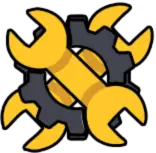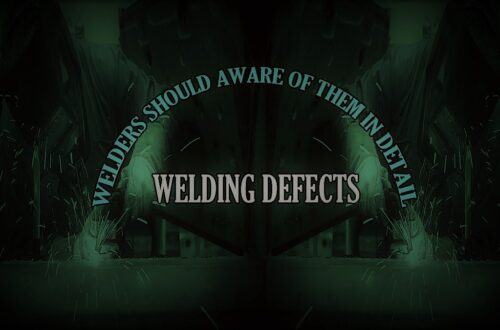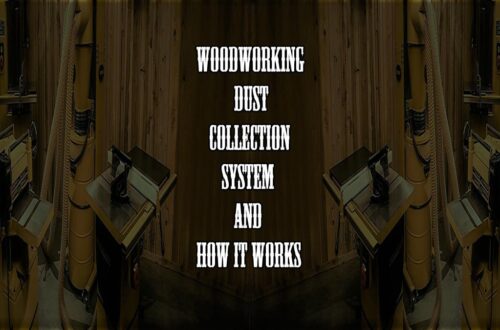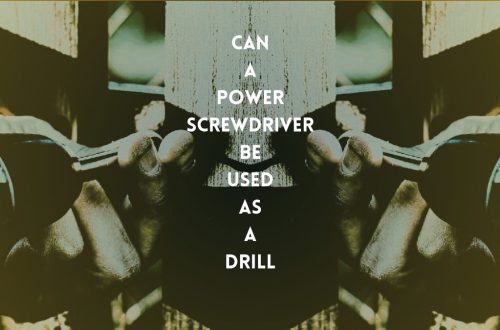
How to Get a Welding Job: Top Strategies for Success
To secure a welding job, start by obtaining proper certifications and creating a strong resume. Networking and applying to welding job postings are essential next steps.
Landing a welding job often begins with the right qualifications – a combination of education, experience, and certifications that demonstrate your expertise in the craft. Aspiring welders should focus on obtaining certifications from recognized institutions like the American Welding Society (AWS), which can significantly boost your job prospects.
A solid resume that highlights your skills, projects, and any apprenticeships or on-the-job training is crucial for making a strong first impression on potential employers. Don’t forget the power of networking; reaching out to industry contacts, attending trade shows, and joining welding forums can reveal opportunities often not advertised. Consistent application efforts, including responding to job postings across various platforms and following up diligently, can help turn your job search into a successful career move. Remember, a proactive approach coupled with showcasing your skill set can pave the way to a rewarding position in the welding industry.
Related Article: How To Choose A Welder: Expert Tips for Perfect Joining
You may also read: Top 9 Best Welding Helmets of 2024 for Welding Safely

Related Article: The Ultimate Checklist for Welding Safety Equipment
You may also read: Is Welding Hard? – The Ultimate Guide to Know about Welding
Preparing Your Welding Credentials
Stepping into the welding industry requires more than skill alone. Your credentials act as a bridge, connecting your expertise with potential employers. Think of them as your ticket to the vast world of welding jobs. Let’s explore how to fortify your credentials to ensure you’re the top pick for your dream welding job. In this section, we will dive into the essential steps: from certifications to portfolios.
Acquiring Essential Certifications
Being certified can set you apart in the welding job market. Certifications showcase your dedication and competence to employers. Let’s break down the key certifications you should consider:
- AWS Certified Welder: Join the ranks of the elite by passing this test.
- Certified Welding Inspector (CWI): Upscale your credentials for higher opportunities.
- Specialized Certifications: Seek certifications in TIG, MIG, or stick welding as per job needs.
Bear in mind, renewing certifications and staying up-to-date with industry standards is as important as getting them.
Building A Strong Portfolio
Your portfolio is a visual proof of your skills. Create an impression with a collection of your best work. Here’s how:
- Select Your Best Work: Include a variety of projects that highlight your versatility.
- Explain Your Process: For each project, outline your approach and the techniques used.
- Showcase Outcomes: Provide before-and-after photos to display your skills.
Remember, a portfolio tells your professional story; make it as compelling as possible.
Mastering The Welding Craft
Welding is not just about joining metals.
It’s an art that demands precision, expertise, and continuous growth.
Continual Skill Improvement
Landing a job in welding starts with honing your skills.
- Practice daily to improve hand steadiness.
- Take on varied projects to gain experience.
- Seek feedback from experienced welders.
Consider certifications like the AWS to showcase advanced abilities.
Staying Updated With Industry Advances
The welding industry is always evolving.
Stay ahead by following these steps:
- Read industry publications for the latest trends.
- Join online forums and groups focused on welding.
- Attend workshops and trade shows regularly.
Invest time in learning new techniques and technologies.
Leveraging Professional Networks
Want to land a welding job? Networking plays a huge role in finding career opportunities within the welding industry. It’s all about who you know and who knows you. Leveraging professional networks could be the key that unlocks your next job offer.
Connecting With Industry Professionals
Building relationships with experienced welders and industry insiders can provide a wealth of opportunities. Reach out to professionals through the following ways:
- Join professional welding associations
- Engage with welding groups on social media
- Attend local welding community meetups
Ask insightful questions and share your experiences with others. A great impression can lead to job referrals.
Participation In Trade Shows And Events
Trade shows and industry events are goldmines for networking. Here’s how you can make the most of them:
- Research upcoming events in the welding sector
- Prepare a crisp, clear introduction about yourself
- Collect business cards and follow up with new contacts
Not only do these events provide knowledge, but they are also perfect for connecting with potential employers.
Related Article: Welding Parameters: Tips for Superior Joint Quality
You may also read: The Major Welding Defects You Should Know

Related Article: How Do Auto-Darkening Welding Helmets Work? – A Complete Guide
You may also read: Top 20 Best Welding Tools of 2024 for Professional Welders
Effective Job Search Strategies
Finding a welding job can be a challenge without the right approach. This guide dives into effective job search strategies to streamline your efforts and boost your chances. By using online job platforms and conducting targeted company research, you could land your next welding position with ease.
Utilizing Online Job Platforms
Online job platforms bring countless opportunities to your fingertips. Sites like Indeed, LinkedIn, and Monster are goldmines for welding job listings. Create a profile that highlights your skills. Make sure you include certifications and experience. Set up job alerts specific to welding positions. This will ensure you never miss out on a good match.
Here’s how to make the most of job platforms:
- Update your resume to include current skills and projects.
- Use keywords like “welder,” “fabrication,” and “MIG/TIG.”
- Network by connecting with industry professionals.
- Ask for recommendations from peers and mentors.
Targeted Company Research
Directly targeting companies can be more fruitful than you think. Start by making a list of potential employers. Visit their websites and look for career sections. Check their values and projects to tailor your application. Your aim is to show you are the perfect fit for their team.
Apply these tips for effective research:
- Identify leaders in the welding industry.
- Find companies within a preferred location.
- Look for businesses expanding their teams.
Organize your findings:
Add more rows as needed
| Company Name | Careers Page | Notable Projects |
| Example Welding Inc. | Click Here | New Bridge Construction |
Keep a close eye on companies’ news sections. They might announce new projects requiring welders. Reach out to them with a personalized cover letter and resume.
Acing The Welding Interview
Landing a job in welding requires more than skillful joins and precise cuts. Your interview is your stage. It’s where you impress beyond your resume. Let’s break down how to stand out when it’s your time to shine.
Demonstrating Technical Knowledge
First up, it’s crucial to demonstrate your welding expertise. Expect technical questions about your experience. You might discuss different welding processes like MIG, TIG, or Stick welding. Be prepared to speak about the materials you’ve worked with, settings for various equipment, and how to read blueprints.
Don’t just talk theory; share stories of real-world applications. Describe a challenging project and the steps you took to complete it. This showcases your problem-solving abilities and practical experience.
- MIG, TIG, and Stick welding proficiency
- Reading and interpreting blueprints
- Material properties knowledge
Showcasing Soft Skills And Flexibility
Soft skills are as vital as technical prowess. Demonstrating that you’re a team player, with good communication and leadership qualities, goes a long way. Emphasize your ability to work under pressure and adapt to changing environments.
Recruiters look out for candidates who show reliability and a strong work ethic. Describe scenarios where you’ve risen to the occasion or how you’ve helped a teammate out.
- Communication and teamwork anecdotes
- Examples of adaptability
- Evidence of a strong work ethic
Wrap up by expressing your eagerness to grow with the company and learn new skills. Highlight any additional certifications or courses that have honed your abilities. This portrays you as an investment-worthy candidate.
Frequently Asked Questions Of How To Get A Welding Job
How Do I Get My First Job As A Welder?
Obtain welding certifications and training from recognized institutions. Build a portfolio showcasing your skills. Network with industry professionals and apply for entry-level positions. Engage in apprenticeships or internships to gain practical experience. Utilize job boards and local union listings to find openings.
How Do I Get Started With Welding?
To start welding, invest in safety gear like a helmet and gloves. Choose the right welder for your project, such as a MIG or TIG welder. Learn basic welding techniques through classes or online tutorials. Practice on scrap metal. Join a welding community for support and advice.
Is Welding Easy To Get Into?
Welding can be accessible for beginners with various entry-level positions and training programs available. It requires learning technical skills and safety procedures.
Is Welding Career Worth It?
A career in welding is rewarding with high demand, competitive salaries, and opportunities for advancement in a variety of industries.
SOME ADVICES FOR YOUNG WELDERS>>
Related Article: The Ultimate Guide to Multi Process Welder
Related Article: Small Welding Projects from Scrap Made Easy: DIY Mastery
Conclusion
Embarking on a welding career is an exciting opportunity. With the right training and eagerness to learn, doors will open. Networking and a solid portfolio showcase your skills. Pursue certifications; they boost employability. Start your welding journey today – the sparks of success await!
Related Article: The Ultimate Welding Tools for Beginners
Related Article: The Basics of Resistance Welding – A Complete Guide





One Comment
Pingback: